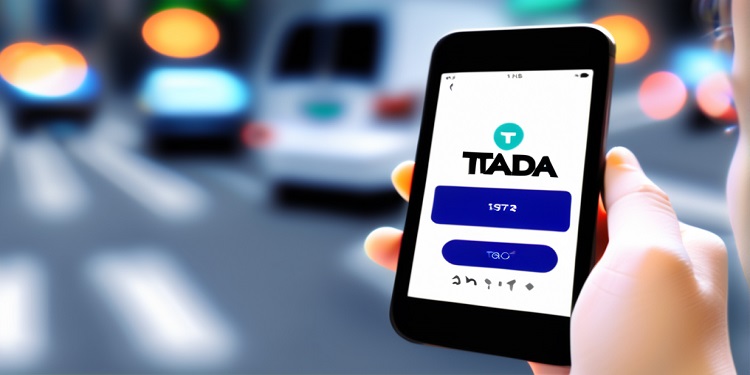Singapore-based ride-hailing platform TADA has taken a significant step toward integrating blockchain solutions into everyday life by partnering with The Open Network (TON). This collaboration has led to the launch of a mini-app within Telegram that allows users to book rides directly without the need for a traditional authentication process. By leveraging blockchain technology, TADA is offering a unique service that eliminates the hassle of sign-ups and additional applications, making it easier for users to access ride-hailing services with just a few taps within the Telegram app.
Through this partnership, TADA’s new mini-app, dubbed “Tada Mini,” offers an innovative feature: users can pay for their rides using USDT or TON cryptocurrency, directly from their blockchain wallets. The service is initially available to users in Singapore, with plans to expand to other regions in the near future. The partnership between TADA and TON marks an important milestone in the integration of Web3 technologies into real-world applications, bringing the advantages of blockchain-based payments to a mainstream service.
Enabling Seamless Payments with Digital Assets
The introduction of Tada Mini signifies an important shift in how digital assets can be used for practical purposes in everyday services. TADA’s integration of Web3 technologies allows users to book rides directly within Telegram without any additional authentication or registration. This streamlined process reflects the ease and convenience that blockchain can bring to consumer-facing services, as users can now pay for their rides using either USDT or TON, making use of their digital assets in a practical, real-world setting.
In addition to the simplicity of booking and paying for rides, the mini-app also serves as a demonstration of how blockchain technology can enhance user experiences without requiring a deep understanding of Web3 concepts. By incorporating decentralized payment options, TADA is paving the way for a broader adoption of Web3 solutions, allowing more users to experience the benefits of blockchain in their daily lives.
Expanding Web3 Adoption Through Real-World Applications
In a blog post announcing the partnership, the TON Foundation highlighted the significance of this development, emphasizing that integrating blockchain technology into daily services such as ride-hailing can drive greater adoption of digital assets. The collaboration between TADA and TON is seen as an effort to bridge the gap between Web2 and Web3, helping users experience the advantages of decentralized technologies without needing to navigate the complexities typically associated with blockchain.
Harvey Kim, who leads the Korean division at TON Foundation, expressed that partnerships with established Web2 platforms are essential for introducing the broader public to the benefits of Web3. He noted that the collaboration with TADA marks a critical step in TON blockchain’s expansion across Southeast Asia. By working closely with a prominent ride-hailing service, TON aims to familiarize more users with blockchain’s capabilities and foster the growth of decentralized services in the region.
The Rise of Web3-Based Ride-Hailing
TADA’s integration of Web3 elements into its ride-hailing platform follows the growing trend of decentralized services in various sectors. Unlike traditional ride-hailing giants such as Uber and Lyft, which operate on centralized platforms and control various aspects like pricing, data, and policies, Web3 ride-hailing services operate on decentralized networks. This shift toward decentralization is evident in the emergence of platforms like Drife, an India-based Web3 ride-hailing service, which allows users and drivers to govern the platform through decentralized applications (dApps).
In contrast to conventional ride-hailing platforms that charge drivers significant commissions, Web3 alternatives like Drife remove intermediaries, enabling drivers to connect directly with passengers. Drivers on such platforms only pay an annual fee to use the service, rather than surrendering a portion of their earnings to the platform. This approach ensures a fairer revenue model for drivers, while also giving users more control over their transactions.
With the launch of Tada Mini, TADA is embracing a similar decentralized approach by removing the need for traditional intermediaries in its ride-hailing service. The integration of blockchain-enabled payments and the elimination of authentication processes streamline the user experience and provide a glimpse into the future of Web3-powered services.
Future of Web3 in Everyday Services
As blockchain technology continues to evolve, its adoption in daily consumer services is expected to increase. TADA’s collaboration with TON is an example of how Web3 solutions are gradually being introduced into mainstream industries, from ride-hailing to e-commerce. By simplifying access to blockchain services and enabling practical use cases for digital assets, companies like TADA are making it easier for users to experience the potential of decentralized technologies.
Looking ahead, the success of Tada Mini in Singapore could pave the way for more Web3-powered services across different regions and industries. As more companies explore blockchain integration, the potential for transforming everyday services through decentralized solutions appears to be on the rise, offering new opportunities for users and businesses alike to benefit from the efficiencies of blockchain.
